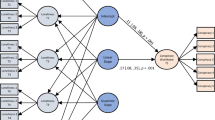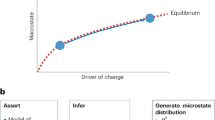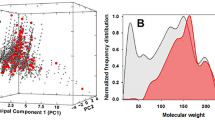Abstract
THE significant work of J. W. Cook and his collaborators1 on the relation between the structure and carcinogenic activity of the higher aromatic hydrocarbons prompts the observation that a similar type of relation holds between the structure of an anthraquinone derivative and the affinity of its leuco-form for textile fibres. With few exceptions, Cook et al. have found that, of the hydrocarbons related to anthracene, those derived by attachment of alkyl groups or hydrocarbon rings to the 1: 2- or 1: 2: 5: 6-positions possessed carcinogenic activity, whilst other orientations were inert.
This is a preview of subscription content, access via your institution
Access options
Subscribe to this journal
Receive 51 print issues and online access
$199.00 per year
only $3.90 per issue
Buy this article
- Purchase on Springer Link
- Instant access to full article PDF
Prices may be subject to local taxes which are calculated during checkout
Similar content being viewed by others
References
Cook, Hieger, Kennaway and Mayneord, Proc. Roy. Soc., B, 111, 455 (1932). Cook, ibid., 485. Barry, Cook, Haslewood, Hewitt, Hieger and Kennaway, ibid., B, 117, 318 (1935).
Author information
Authors and Affiliations
Rights and permissions
About this article
Cite this article
BRADLEY, W. Carcinogenic Activity and Substantivity. Nature 137, 404–405 (1936). https://doi.org/10.1038/137404b0
Issue Date:
DOI: https://doi.org/10.1038/137404b0
Comments
By submitting a comment you agree to abide by our Terms and Community Guidelines. If you find something abusive or that does not comply with our terms or guidelines please flag it as inappropriate.



